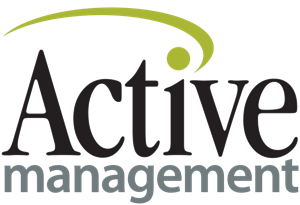Mystery Shop Your Own Studio’s Classes

“Mystery shopping” your own classes isn’t a new idea or revolutionary. In my experience, it is necessary to be able to maintain a high quality of class delivery, excellence and experience in all aspects of your fitness business. It consistently gets moved to the bottom of the to do list for many business owners, so today I am going to give you some evidence as to why it should be a quarterly task – and an important one at that.
A mystery shop is a check in, a brand standards measurement and a qualitative assessment all in one. Fitness is a service based industry and many of the ‘deliverables’ we promise such as; improved strength, weight loss, feel better, etc; are not tangible (at least straight away). They may be vague feelings, or only visible if someone is paying close attention or consistently measuring. In the group exercise space, fitness results, gains or measurements are even harder to come by – so how do we ensure that our products (our classes) are delivering what we say they do?
First thing to remember is that you can develop your own assessment that is relevant to your facility or the type of class you offer, or you can use templates. In our experience, we find the best assessment usually is just to attend a few classes. This is particularly important if you have not ever done an assessment, or it has been a long time between class visits. The reason for this is so you don’t all of a sudden alienate your instructors, make them incredibly nervous or make them feel threatened about their job. Introducing this practice into your facility can sometimes be delicate work, but it only strengthens your team and your class offerings in the long term.
So the first type of ‘mystery shop’ we have is the “Drop in” class assessment. Whenever you get time you head into a class and experience it from a member’s viewpoint. This is about your experience, how you felt, what you liked and what you didn’t. You may notice things about the instruction, but you are more concentrating on the class feeling as a whole. In this setting we don’t take notes during class, we remember what we can and we pay deep attention to the instructor, the class flow and your feelings. This gives you a very personal experience of the class and can understand your offering more from a members perspective.
You may not give any formal feedback to your instructor. Your debrief after class may include what you liked, what you didn’t like as much from your personal experience and how you feel. If you have never opened up a feedback channel with your instructors before, this is often a great way to start as it is less threatening and intimidating yet still extremely valuable. What you notice when you are in the heat of a class may be vastly different to what you notice just walking around your facility.
A “Formal” class assessment is exactly that. Where you would not participate in the class, but sit away from the action to take notes on the instructor, the flow of the class, how it is handled and other factors. Giving your instructors notice that you are conducting these assessments is important so there is clear communication, no resentment and they know that these assessments aid in their up-skilling. If you have never assessed a class before this is where it may be tricky to know what you are looking for and when.
A formal class assessment is what we use at Exercise to Experience to review the instructors presence, performance, interaction and direction. Instructing and coaching a class is a great skill and something we believe is vitally important to the retention of members in your business. It is also vitally important in levelling up the quality and standard of instruction across the entire industry and we believe strongly in this process.
Mystery shopping can also happen not only from the directors/managers in the business, but at every level and position. Using both types of assessment from different viewpoints and people across your business gives you a diverse range of feedback and creates a great culture of equality, sharing and helping each other. Letting your members see other staff participate in classes reinforces the benefits of attending classes regularly and creates a great open community. There are so many reasons to begin regularly attending your classes within your own facility. We highly encourage you to begin now!
At Exercise to Experience we understand that starting to ‘mystery shop’ your own facility and classes may be challenging to initiate. We have created a step by step guide and class assessment template for you to follow in our Retention Handbook. Join our private Facebook community with online guides and easy to follow templates so you can start your own mystery shopping journey.

Vanessa is the unique intersection of loving the science and theory behind everything and bringing the energy. Vanessa brings her exercise science degree, extensive personal training experience and problem solver mindset to the table.
She wants to change the world by helping people fall in love with movement and exercise. Her ability to transform your long term training and group exercise classes is taking the industry to a new level.
Her experience working for herself, in big box gyms as well as educating instructors world wide has led her to become a Master Trainer in many products and training modalities throughout Australia and Asia.

